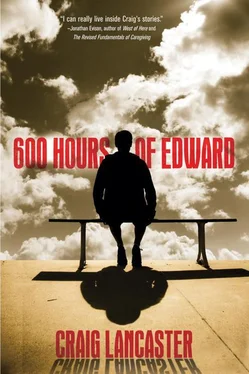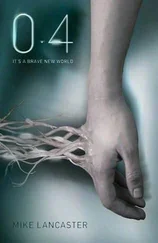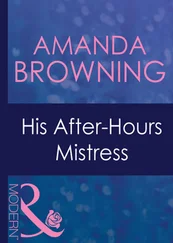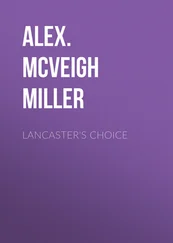“It’s settled, then. The Cadillac is yours.”
“If that’s how you want to do it,” Jay L. Lamb says.
“That’s how I want to do it,” my mother replies.
“OK, let’s talk about Edward,” Jay L. Lamb says. “When Ted bought the house on Clark Avenue, it was in his name and yours, Maureen. The house passes along to you. Ted’s will makes it clear that we’re now to have you and Edward sign a quit-claim deed listing Edward as a co-owner.”
“What’s a quit-claim deed?” I ask.
“It essentially says that when your mother dies, the house goes solely to you.”
“So it’s my house now?”
“Yours and your mother’s, yes.”
“It means, Edward,” my mother says, “that you can stay in that house for as long as you like.”
Jay L. Lamb also explains that my father has set up an annuity for me, with enough money behind it to ensure that my living expenses are taken care of for the rest of my life. My bills will continue to go to Jay L. Lamb’s office, and he will administer my annuity and pay my expenses.
“You’ll need to budget, of course,” Jay L. Lamb says. “But you have plenty in reserve should you occasionally go over.”
“How much in reserve?” I ask.
“Five million dollars.”
Jay L. Lamb then explains what happens to the money after my mother dies—that some will go to me, some will go to taxes, and that some should probably go to charity while my mother is still alive so that the tax burden is reduced, but I’m not listening all that closely. Five million dollars is more money than I would ever need, I think.
– • –
After Jay L. Lamb has finished going over money matters, he asks if I have any questions.
“Yes,” I say. “My mother says I can stay in the house on Clark Avenue for as long as I want. Does that mean that the memorandum of understanding is over?”
“What’s this?” my mother asks.
“I… I think…” Jay L. Lamb is stuttering, and I’ve never seen him do that before.
“Last week, the day before Father died, he made me sign a promise that I would not spend time with Donna Middleton ever again, or I would have to move out of the house on Clark Avenue and find a way to pay my own bills,” I say.
“Who is Donna Middleton?” My mother is sitting forward in her chair.
“She’s my friend. She lives on my block.”
“You made a friend on your block, Edward? That’s wonderful.”
“Yes. If I can stay in the house as long as I want, no matter what, I want to keep being friends with Donna Middleton. That’s why I’m wondering about the memorandum of understanding.”
“Jay,” my mother says, “what is this memo?”
Jay L. Lamb reaches into one of his desk drawers and pulls out a green office folder, just like the ones I use to store my letters of complaint. He thumbs through it, picks out a sheet of paper, and hands it across the desk to my mother.
My mother reads the piece of paper. A couple of times, her mouth drops open. Finally, she turns to me.
“Your father made you sign this?”
“Yes.”
“Jay,” she says, turning away from me and toward Jay L. Lamb, “what is this all about? Why would Ted make Edward sign a document like this? Even if Ted had a problem with Edward’s knowing this woman—and for the life of me, I can’t imagine why—what business is it of yours?”
“Jay sends me lots of letters,” I say.
“This isn’t the only one?”
“No.”
“Jay,” she says, “you better let me see those letters, right now.”
– • –
By the time my mother works her way through the file with my name on it, she is quaking with anger. She reads letters informing me that I have spent too much money, letters summoning me to meetings at Jay L. Lamb’s office, letters correcting me for mistakes made in taking care of the house. I count eighteen of them as she reads them and dismissively tosses them back on Jay L. Lamb’s desk, one at a time.
“I just can’t believe this,” she says. “How dare you? How dare you, Jay?”
“Maureen, please, I was acting on behalf of my client.”
“It’s absurd. It’s positively ridiculous. Did you never think to tell Ted that he was being an idiot for doing this?”
“Maureen, he was trying to protect everybody—you, him, and of course, Edward. I don’t know. A lot of it seemed to make sense at the time. Ted wanted to separate his duties as a father from his duties as a legal benefactor.”
“It makes no sense to me. This is his son. If he wanted to talk to his son, he should have just talked to his son.”
I have never seen my mother so worked up about anything.
“Point taken, Maureen.”
“I can’t believe this,” she says, shaking her head. “I can’t believe this was going on and I had no idea about it.”
– • –
Eventually, my mother cools off, and she even apologizes to Jay L. Lamb, telling him, “Ted did a lot of dumb things he shouldn’t have done, and I guess I failed in not knowing what some of them were. I understand that you were just doing your job, Jay. But listen to me: Never again. You do what you’ve been hired by this family to do. I will do the talking to Edward. Do you understand me?”
“Yes, Maureen, I do.”
“OK, then. Edward, let’s go.”
We’re heading to the door when Jay L. Lamb says, “Oh, one more thing. I nearly forgot. Edward, this is for you.”
Jay L. Lamb hands me an envelope with my name written in across the front: “Edward.”
“What’s this?”
“It’s from your father. Read it when you get home.”
– • –
Because I don’t like Jay L. Lamb telling me what to do—in fact, my mother just instructed him not to do that anymore—I wait until I’m in the parking lot to open the envelope from my father. I turn the ignition far enough to get the stereo playing, and it’s one of my favorite R.E.M. songs playing on the CD I have in the player.
I fish out the contents of the envelope, and it’s a two-page handwritten letter from my father, in his precise block letters that, when I was a child, I would try to emulate in my own penmanship. I could never do it.
Dear Edward,
As I write this letter to you, I do so with the hope that you never have to read it. For one thing, if you’re reading it, it means that I have died. More than that, it means that I did not get a chance to do in life what I’ll do now.
You have been a challenging man and a challenging son, Edward, and I have not always performed admirably in my role as your father. I never quite figured out how to deal with your mental illness. For a long time, I tried to convince myself that I had tried my best. But I know the truth: I never tried hard enough. When I sent you away from the house in 2000, I did so out of anger and exasperation—I felt like your illness was overwhelming me and that episodes like the Garth Brooks incident were exposing the family to ridicule. I was selfish, Edward. I put myself before you.
But then something wonderful happened: You thrived in your little house there on Clark, and Dr. Buckley made great progress with you. I was so happy about that, but I was also so sad, because I knew that I had thrown you out of the house and you weren’t coming back. You wouldn’t have wanted to, and I wouldn’t have known how to ask you.
So even though you got better, you and I got worse. And I need you to know this, Edward: It’s not your fault. It’s mine. I can write this letter and say that, knowing that you aren’t going to be reading it any time soon, but I cannot bring myself to say these words to you in real life. I’ve tried. I am weak. I will keep trying. It will break my heart if you have to read this.
Читать дальше












